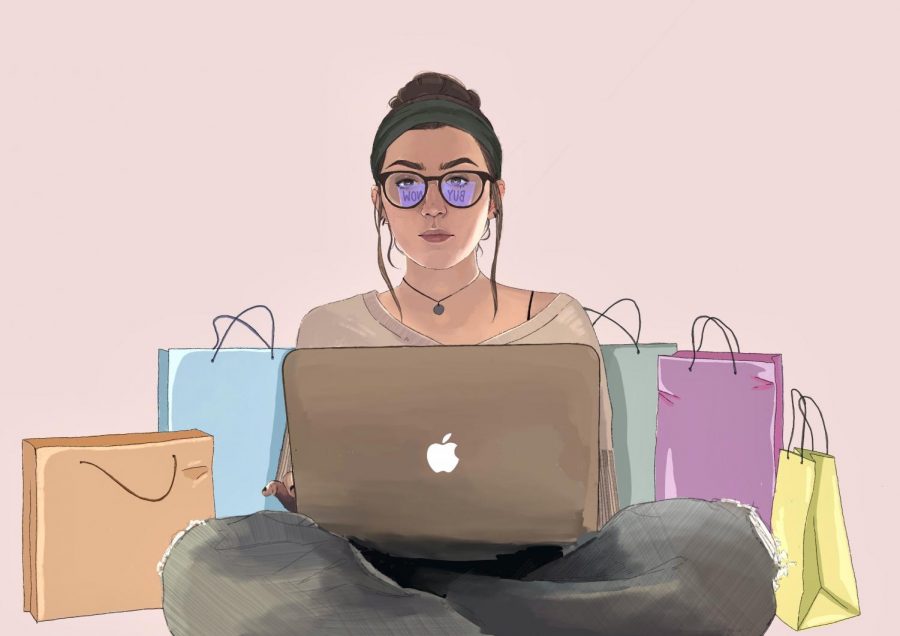Individuals are responsible for uplifting local businesses
In a socio-economic landscape made claustrophobic by the overwhelming volume of immediately attainable inventory, the action of purchasing everyday items at low costs from online retailers is often compulsory.
It’s true these distributors are much more accessible than the store-front of the average small business — especially in the reality of a pandemic — but at what point do obstacles such as this become an excuse to deflect the responsibility of providing support to the community around us for the sake of satisfying our ravenous appetite for material items?
According to a study done for the Proceedings of the Natural Academy of Sciences of the United States of America, three-quarters of small business respondents in the sample only had enough cash on hand to last two months or less. This means that while many Americans were reliant on digital distributors, such as Amazon, for contactless delivery in the early stages of the pandemic, the majority of small business owners were left with little to no support as they navigated the uncertainties of the time.
In this context, it is understandable individuals could not act as a customer for local retailers, especially if there were no delivery or mobile options available as a means to contribute. Yet as restrictions lessened and the small businesses that survived the brunt of COVID-19 reopened to in-person customers, these stores have still struggled to stay afloat.
A study done by the Federal Reserve Bank found that even in 2021, 3 out of 10 small business owners do not think their business will be able to outlast the pandemic. Furthermore, 8 in 10 minority-owned businesses report their company is in poor financial condition.
Although the coronavirus created a suffocating environment for financial opportunity for these businesses, is there not some responsibility on the communities surrounding them to stimulate the local economy by purchasing from them?
Chiefly in the Blue Valley community, there have been major losses of locally owned companies throughout the pandemic, but some of this loss could have been avoided if the privileged community in this area actively supported these entrepreneurs instead of opting for the convenience of large corporations such as Amazon or Shein.
The reality of a world and economy so debilitated by a pandemic is that without the collective working to avoid the simplicity and absentmindedness of quick retailers, local businesses cannot survive.
Whether it’s grabbing coffee from a family owned coffee shop or buying your next loungewear set from a tiny boutique, choosing to seek out opportunities to do your part as a member of the greater Overland Park community not only supports small business owners in need, it also expands your exposure to quality goods and new experiences.

Charlie Trent is editor-in-chief and is a senior. It is her fourth year on staff. In school, she is involved in Chambers singers as Dance Captain and Choir...




